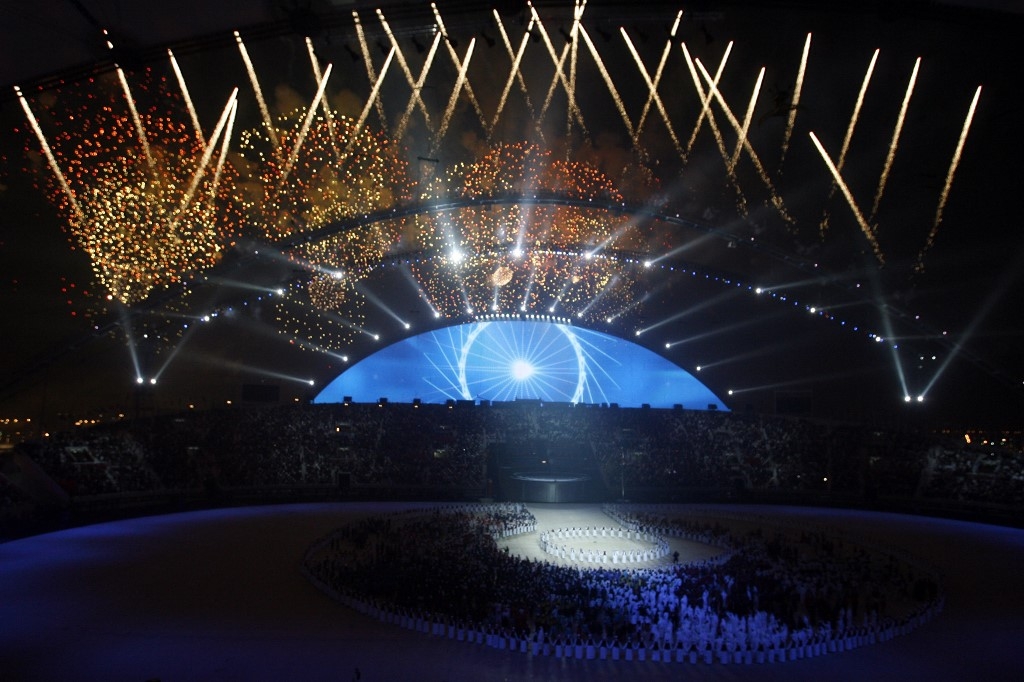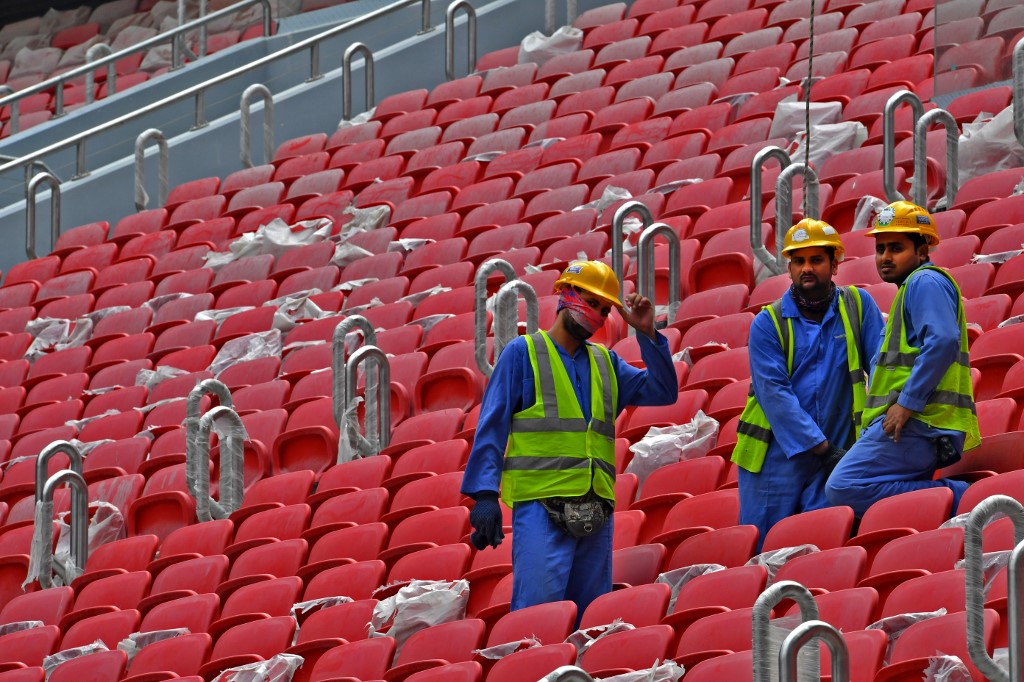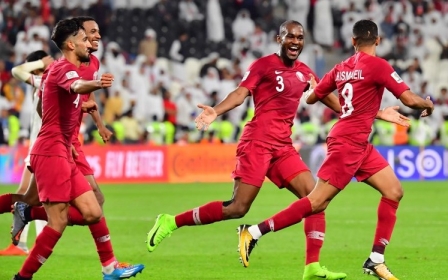Doha vs Riyadh: Who will win bid to host the Asian Games?

The simmering rivalry between Qatar and Saudi Arabia took an unexpected turn in recent weeks with the announcement by the Olympic Council of Asia that both nations had lodged formal bids to host the 2030 Asian Games.
Commentators immediately identified the competing bids as the latest iteration of the tit-for-tat politics that have marked Qatar-Saudi relations since the beginning of the blockade three years ago. With around 10,000 athletes participating, the Asian Games is one of the largest sporting events in the world.
Yet, while winning the hosting rights would allow for regional bragging rights, the bids must also be examined in terms of what they could entail for each country.
Sporting infrastructure
Qatar’s bid, in its simplest terms, is a continuation of the nation’s desire to host large sporting events - a journey that began in 2006 with the Asian Games themselves. The many significant sporting events that Qatar has successfully held since then testify to its ability to overcome the cultural challenges they often bring.
New MEE newsletter: Jerusalem Dispatch
Sign up to get the latest insights and analysis on Israel-Palestine, alongside Turkey Unpacked and other MEE newsletters
Hosting the 2030 games would give Qatar added value from the sporting infrastructure introduced for the 2022 World Cup. One cannot help but wonder, though, whether there are other factors at play. Could the bid be a deliberate strategy to avoid further exposure to the outrage surrounding its World Cup narrative? Is Qatar shifting its focus to hosting second-tier events to avoid the glare of the global media?
The notion of Riyadh 2030 offers some other enticing possibilities. Could it, for example, enable the beginnings of a rapprochement with Qatar?
Given that the Asian Games rarely catch the eye of the Western sporting press, this could be the case. Or just as the 2006 Asian Games presented a stepping stone for Qatar’s successful World Cup bid, could a winning bid for the 2030 games be a precursor to the nation’s long-held ambitions of hosting the Olympics themselves?
The Saudi bid, by comparison, brings a lot more of the unknown. At the very least, it would allow Saudi Arabia to showcase Riyadh as the “megatropolis” it hopes to become.
Hosting the games would also provide a very public acid test for the reforms that Crown Prince Mohammed bin Salman (MBS) has attempted to push through in an effort to modernise the state - most notably, the extension of further civil liberties to women, and the “zero tolerance” policy towards administrative and financial corruption.
Soft-power benefits
While Saudi Arabia has started to become more established as a sporting venue in recent years, a successful Asian Games would continue to open up Saudi society to the world, allowing it to reap the attendant soft-power benefits.
The notion of Riyadh 2030 offers some other enticing possibilities. Could it, for example, enable the beginnings of a rapprochement with Qatar?
Estranged by the 2017 blockade, a resumption of relations between the neighbouring states could ease the burden on Riyadh’s air-travel infrastructure, given the relatively short distance between Riyadh and Doha.
Similarly, could a successful bid make Saudi Arabia think twice before getting involved in other regional entanglements?
Event safety is an integral part of any tender. In addition to halting the drain on government coffers and quelling a source of negative opinions abroad, winning the games would give Saudi Arabia yet another reason to disentangle itself from the conflict in Yemen, sooner rather than later.
The opportunities arising from a successful Saudi bid are enticing. But as Qatar has discovered, stepping out into the world of global sports is not without its hazards.
Repeatedly targeted by both the media and human rights groups, Qatar has made a plethora of changes to its employment laws since 2010, many of which have been lauded internationally. Whether Saudi Arabia is willing to, or capable of, making such changes remains to be seen.
Accusations of sports-washing
As Saudi Arabia’s sporting trajectory continues, accusations of sports-washing have arisen from its dalliance with Premier League club Newcastle United, suggesting that it will experience much of the same “soft disempowerment” as its Gulf cousin.
Soft disempowerment - defined as the unexpected, negative consequences that arise when a state attempts to exert soft power - occurs when states are deemed to be failing to uphold the standards set by the global community in matters such as the environment or human rights.
The highly controversial kafala system was for years the source of such disempowerment for Qatar, which in response to such criticisms, officially abolished it in January.
Yet, with billions of dollars of construction work planned for Riyadh alone, the kafala system remains an essential part of Saudi society.
In addition to the longstanding censure Saudi Arabia has received from the international community over the imprisonment of women’s rights activists and the Jamal Khashoggi affair, among other issues, its response to such criticisms will be closely monitored.
The coronavirus factor
While Qatar has much of the necessary infrastructure already in place, a Saudi bid would also have to countenance the potential repercussions of the coronavirus pandemic and the economic havoc it has wreaked around the globe.
With some experts predicting Covid-19 could last for two years, as investment slows down, Saudi Arabia’s Vision 2030 is in danger of being delayed, if not entirely derailed.
How will the Saudi people react to what many could construe as yet another MBS vanity project if oil revenues continue to dwindle?
With both nations also rumoured to be interested in hosting the 2027 Asian Cup, it is clear that sport will continue to be an integral part of their respective national visions.
But how will the Saudi people react to what many could construe as yet another MBS vanity project if oil revenues continue to dwindle - particularly when much of the required sporting infrastructure will be redundant afterwards?
As games of oneupmanship go, for Saudi Arabia at least, the cost of winning might outweigh the value of the reward when the host city is finally announced in Sanya, China, in November.
The views expressed in this article belong to the author and do not necessarily reflect the editorial policy of Middle East Eye.
Middle East Eye delivers independent and unrivalled coverage and analysis of the Middle East, North Africa and beyond. To learn more about republishing this content and the associated fees, please fill out this form. More about MEE can be found here.







